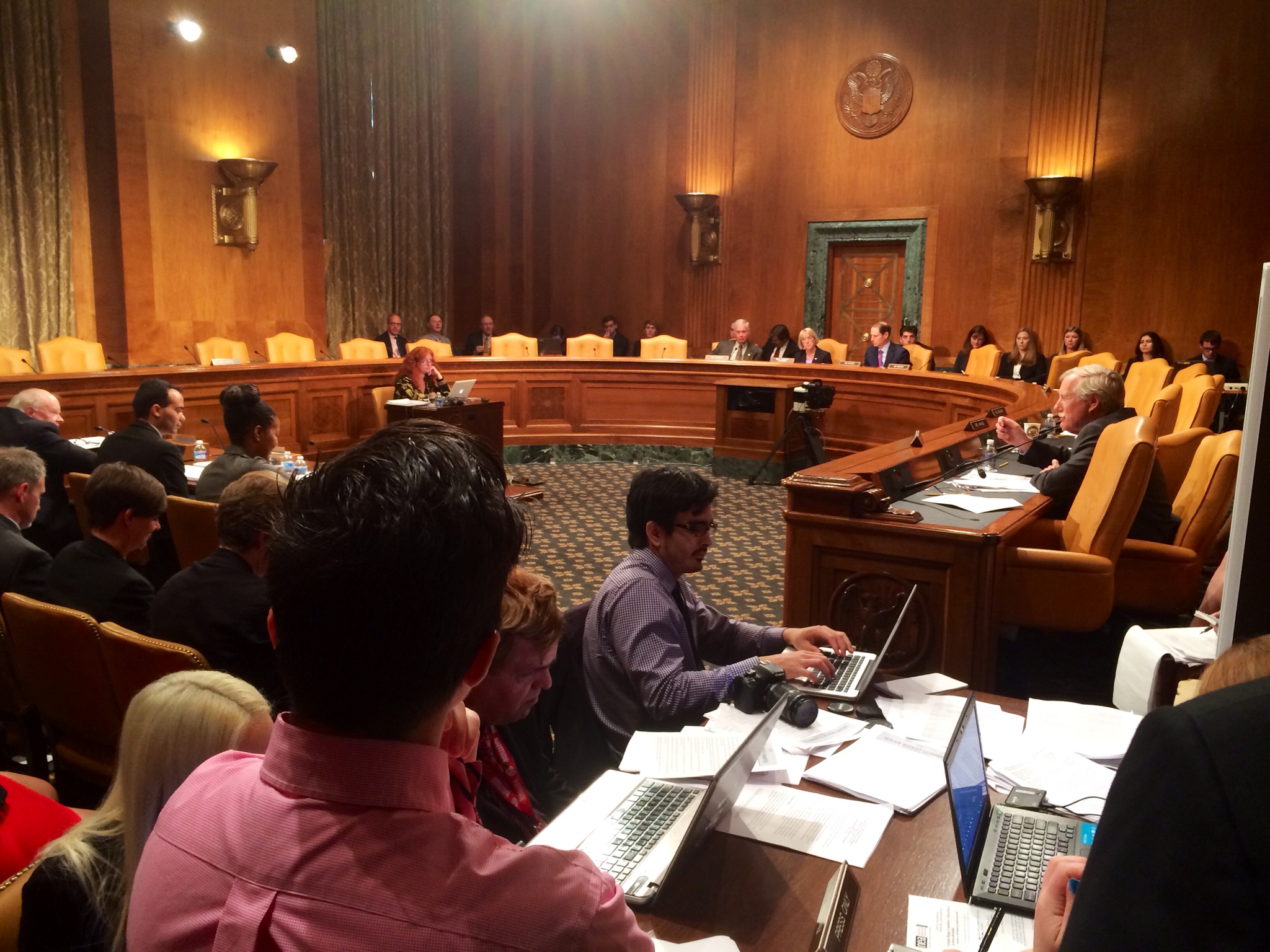WASHINGTON – Brittany Jones is one of 40 million people around the country facing a formidable challenge – student loan debt is mounting and it can have lasting consequences on people’s financial futures, from owning a home to saving for retirement, experts say.
“Student loan debt has been the driving force of my decisions for the last eight years of my life,” said Jones, a recent college graduate who brought her plight to Capitol Hill Wednesday at a Senate Budget committee hearing on the impact of student loan debt..
“According to my current repayment plan, it is projected to be for the next 25 years of my life, well into the years for which I should be planning a retirement,” Jones added. “It should not be that way.”
Jones racked up more than $70,000 in student loan debt after graduating from Virginia Commonwealth University in 2011 with a degree in early and elementary education. She began her first job right out of college as a preschool teacher making $10 an hour.
A year later, Jones lost her job and defaulted on nearly $60,000 in remaining federal student loans.
“I worked as many as three jobs at once, just to make my monthly payments,” she told the panel. She was unaware of income-based repayment plans.
Jones isn’t alone.
As of now, the average college graduate will have to pay back about $30,000 in student loans, with a record number of households owing student debt, according to the Project on Student Debt, a non-profit research organization.
Americans owe more than $1.2 trillion in student loan debt, a daunting figure that looms over the heads of people ready to start their lives and careers, according to the Consumer Financial Protection Bureau. The outstanding loans also have an impact on the still-recovering economy, said the bureau’s student loan ombudsman, Rohit Chopra.
“Student loan debt isn’t just crushing borrowers, there’s evidence that it’s holding back our economy,” said Sen. Patty Murray, a Washington Democrat and committee chairwoman.
According to a survey by the National Association of Realtors, 49 percent of Americans cited student loan debt as a “huge obstacle” to home ownership. It’s also been a key factor in explaining the relatively low levels of car purchases by young people, said Chopra.
“Unlike most markets for consumer products and services, student loan borrowers generally don’t get to choose their student loan servicer,” Chopra said. “And with few opportunities to refinance with a new provider, a consumer cannot easily take his or her business elsewhere.”
Next week, Senate Democrats, led by Sen. Elizabeth Warren of Massachusetts, are expected to push a bill that would let borrowers refinance their loans at lower interest rates.


